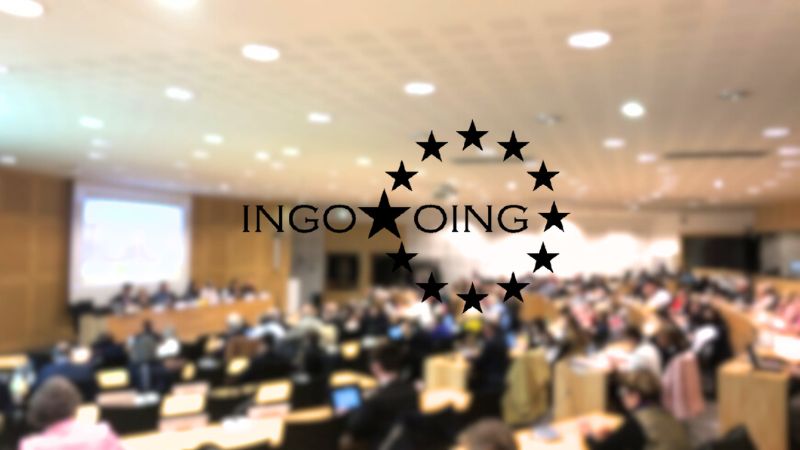

Today, the Polish Prime Minister Tusk presented the priorities of the Polish Council Presidency to the European Parliament.
Under the theme ‘Security’ Poland will focus its agenda-setting powers in the Council of Ministers on EU defense readiness and capabilities, border protection, disaster resilience, economic security, energy supply certainty, a resilient agriculture, and not least health security.
Donald Trump
With Donald Trump back in the White House, Europe faces new economic, social, political and defence-related challenges.
Even if Trump has not imposed new tariffs in EU countries on day one, he has already pulled out of the OECD/G20 Inclusive Framework on Base Erosion and Profit Shifting (BEPS). This is deplorable and a real set-back in international efforts to curtail tax avoidance by multinational corporations. We must be prepared for further measures by the Trump administrations in other areas too. The EU must immediately agree on how to proceed, as his measure completely contradicts the EU’s efforts to bring about a global solution to fair corporate taxation.
Further initiatives are needed to intensify efforts to achieve global solutions. This is true not only in the area of taxation but in the field of climate change mitigation too. After Trump has pulled the US out of the Paris climate agreement, global attempts to make emitters like China and India reduce their CO2 emissions are more important than ever. The Paris agreement must be preserved.
According to CESI, the Polish Presidency should be ready to help:
- manage possible shifts in trade relations by strengthening internal EU cooperation and the internal market. Europe can only be as strong towards the outside as it is united towards the inside.
- boost defense capabilities without compromising social investments. The needs of citizens must not be forgotten, even if military security is the precondition of it.
- build Europe’s self-sufficiency in energy, manufacturing, and digital industries to stay resilient and nurture forward-looking economic sectors and jobs.
Competitiveness and social fairness
One of the key goals of Poland’s Council Presidency is boosting economic competitiveness. To maintain fairness, active labour market policies (ALMPs) that focus on upskilling and reskilling are needed.
CESI therefore expects from the Polish Presidency to promote policies that:
- invest in lifelong learning and vocational training so workers can keep up with evolving job demands.
- improve job security with fair working conditions, decent wages, and safeguards against unstable employment.
- support cooperation between public and private sectors to create stable jobs, especially in struggling regions and sectors.
Transitions and social dialogue
As Europe moves toward greener and more digital industries, CESI stresses the need for a fair transition that doesn’t leave workers behind. Strong relations between trade unions, employers, and governments are essential.
In the view of CESI, the Polish Council Presidency should seek to:
- strengthen dialogue mechanisms at national and EU levels to tackle challenges specific to different sectors.
- follow through on the European Pillar of Social Rights to turn commitments into real benefits for workers.
- recognise the importance of public services and ensure adequate investment in health, education, and social care.
- support an EU framework to help workers and communities most affected by climate and digital changes.
- encourage social protection policies to cushion the impact of industrial changes.
- promote equal opportunities in the workforce, ensuring that everyone can benefit from new economic opportunities.
In the immediate term, CESI expects that the Polish Presidency will take a proactive approach to advance negotiations of social policy files already under negotiation or at least in preparation, including the EU Traineeships Directive, a socially-oriented revision of public procurement rules, and a forward looking Defence White Paper and Women’s Rights Roadmap.
Generally, social rights must not fall victim but accompany a road to further competitiveness. In this context it would also be most regrettable should the Court of Justice of the EU follow a recent Opinion of Advocate General Emiliou to annul the EU’s minimum wage directive – a social flagship initiative of the EU’s last term that would be vital to protect collective bargaining and ensure decent wages across Europe.
To conclude
The success of the Polish Council Presidency will depend on its ability to push forward policies that boost Europe’s economy while ensuring security and fairness for all, in a period of uncertain impacts of the new Trump administration. The key question will be the preservation of unity in the EU.

Image Gallery
The Polish EU Presidency: Delivering in times of uncertainty
Related videos
Similar Posts


CESI in line with the priorities of the Council of Europe Conference of International NGOs
This week, from October 13-16, the Council of Europe (COE) held its latest annual session of the ‘Conference of International Non-Governmental Organisations’ in Strasbourg, aimed at giving space to democratic values, civic participation and social rights across Europe.
Get in touch
with us
Confédération Européenne des Syndicats Indépendants (CESI)
Contact form
Stay up to date
Don’t miss a thing and subscribe to our newsletter
Subscribe now and receive newsletters and much more!



